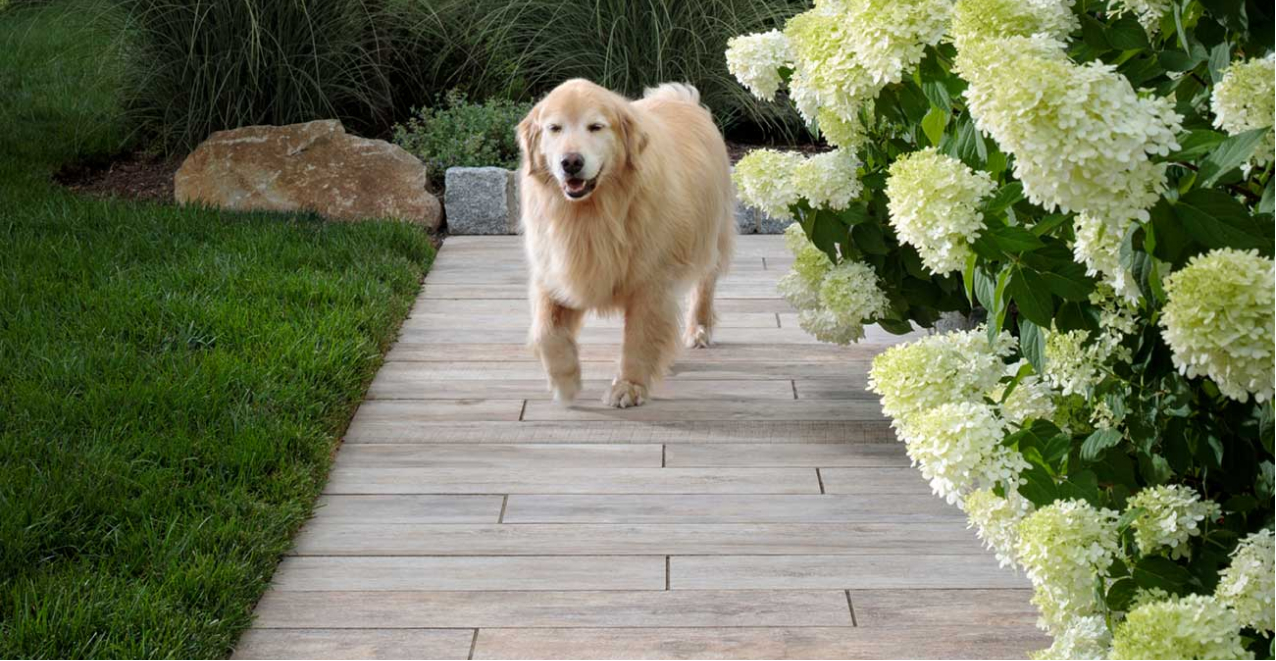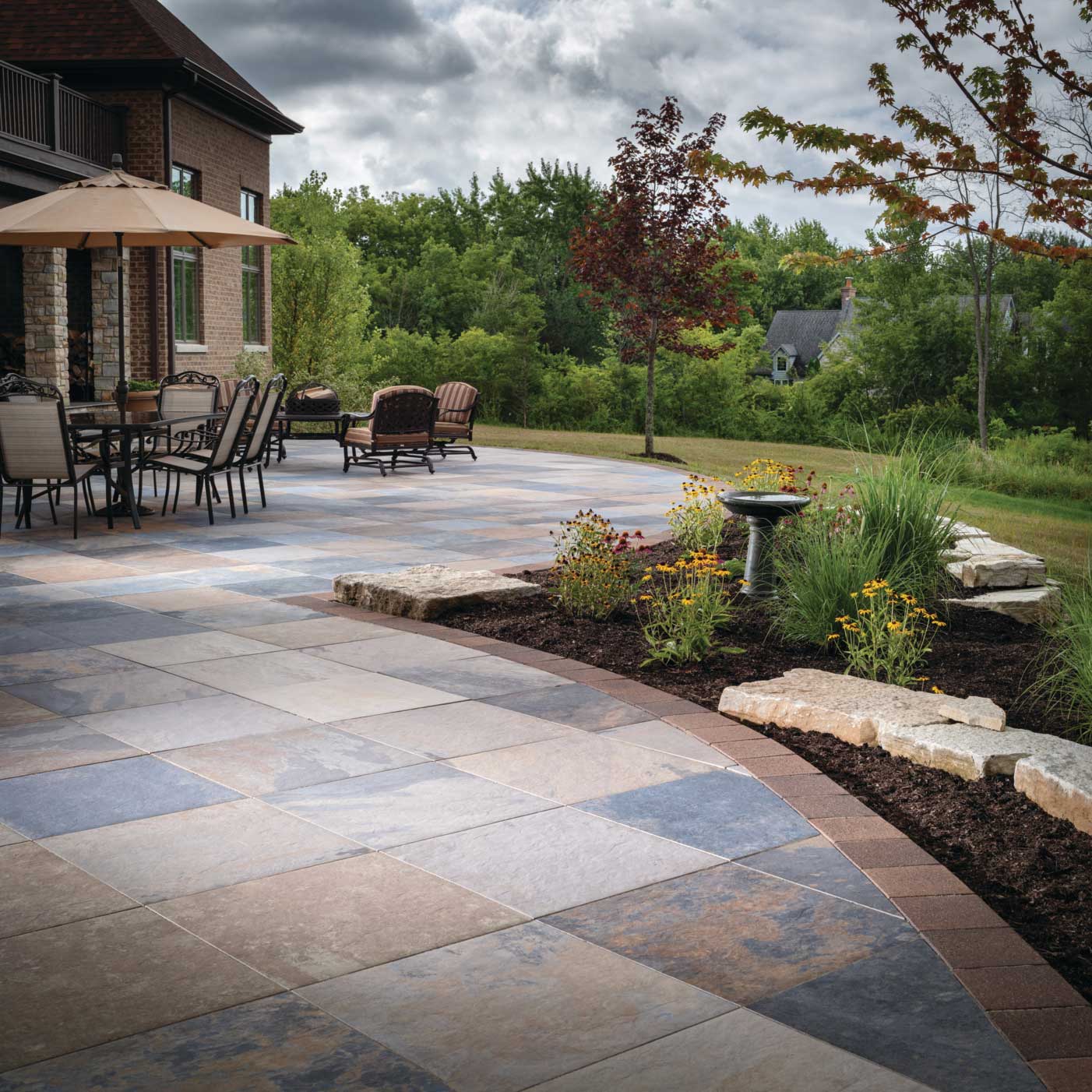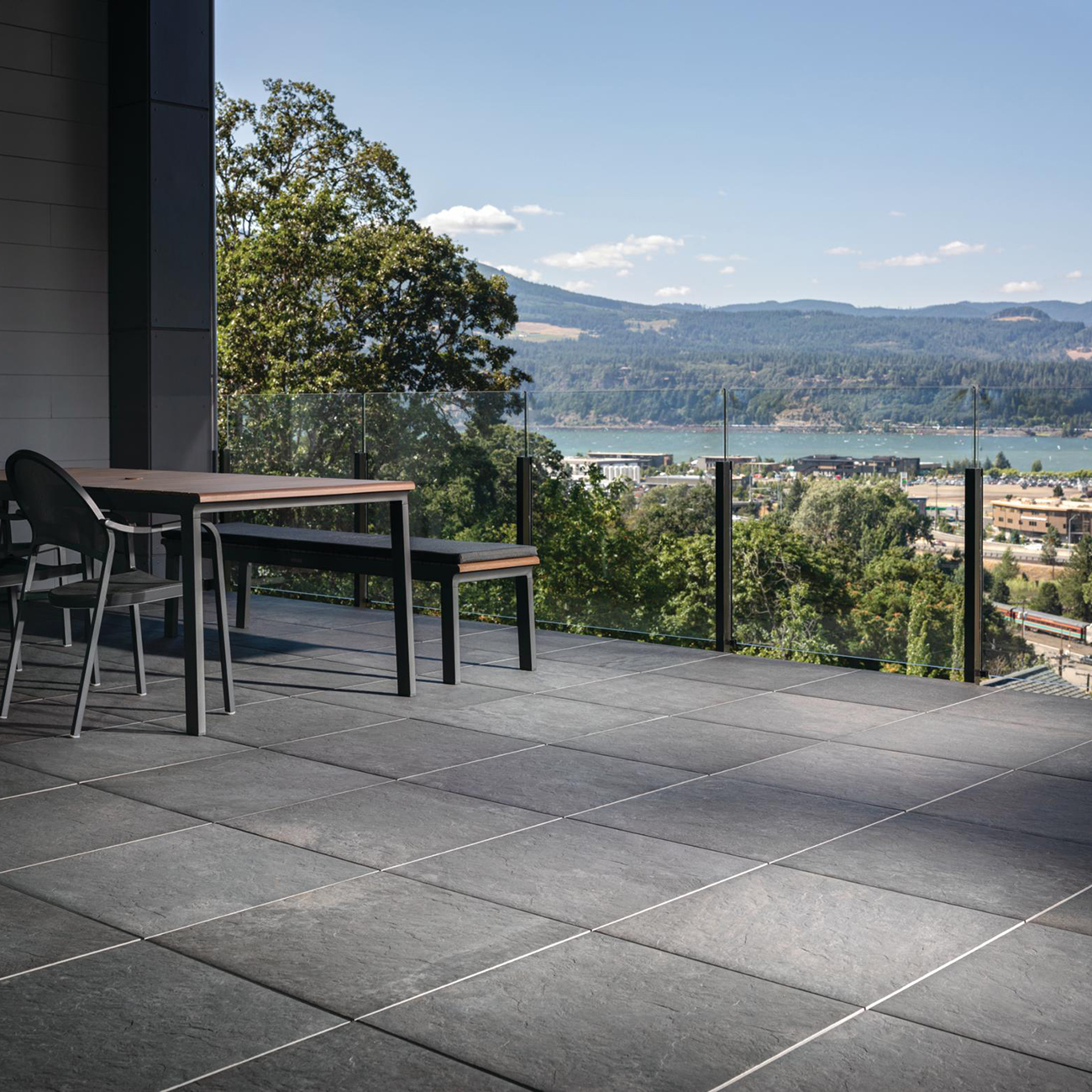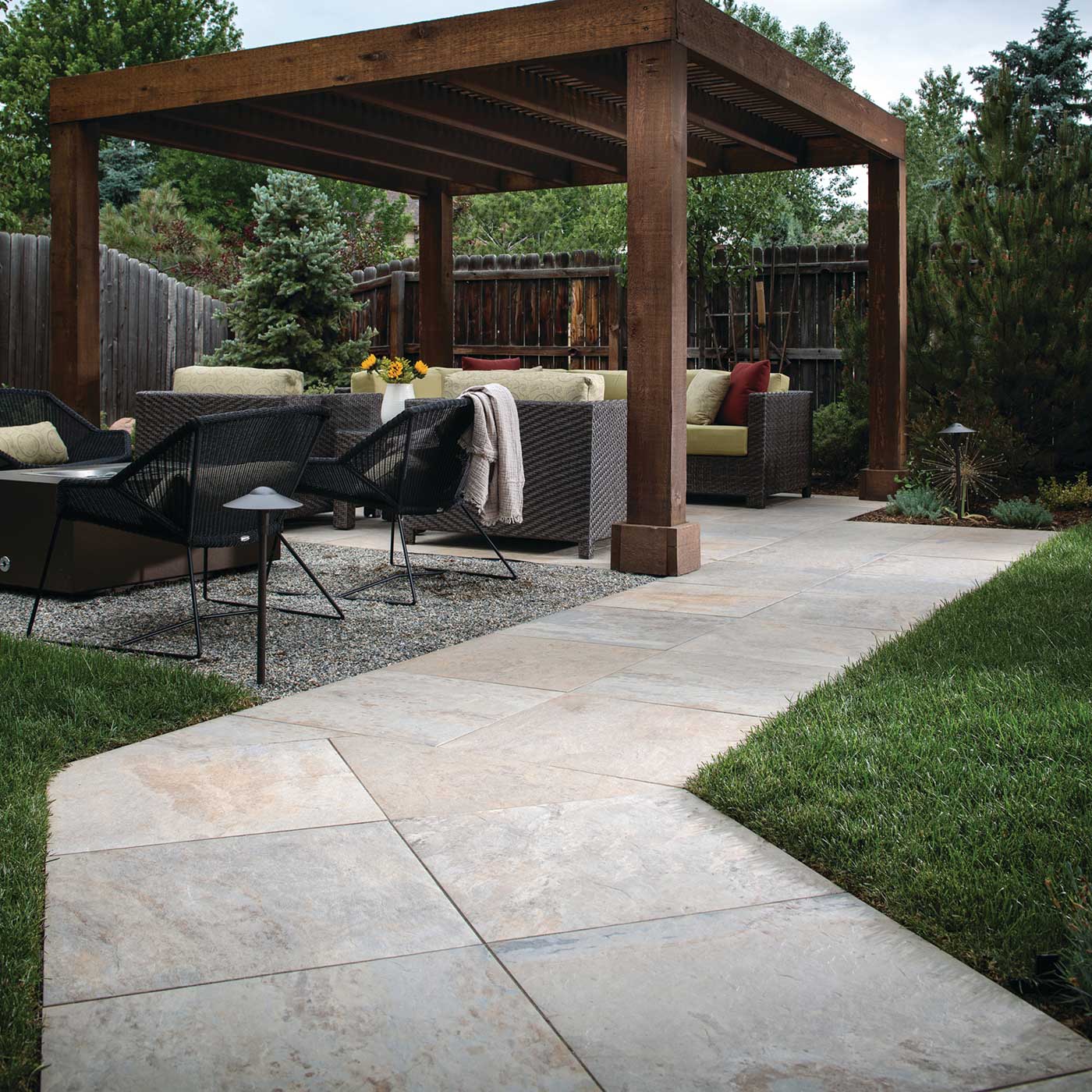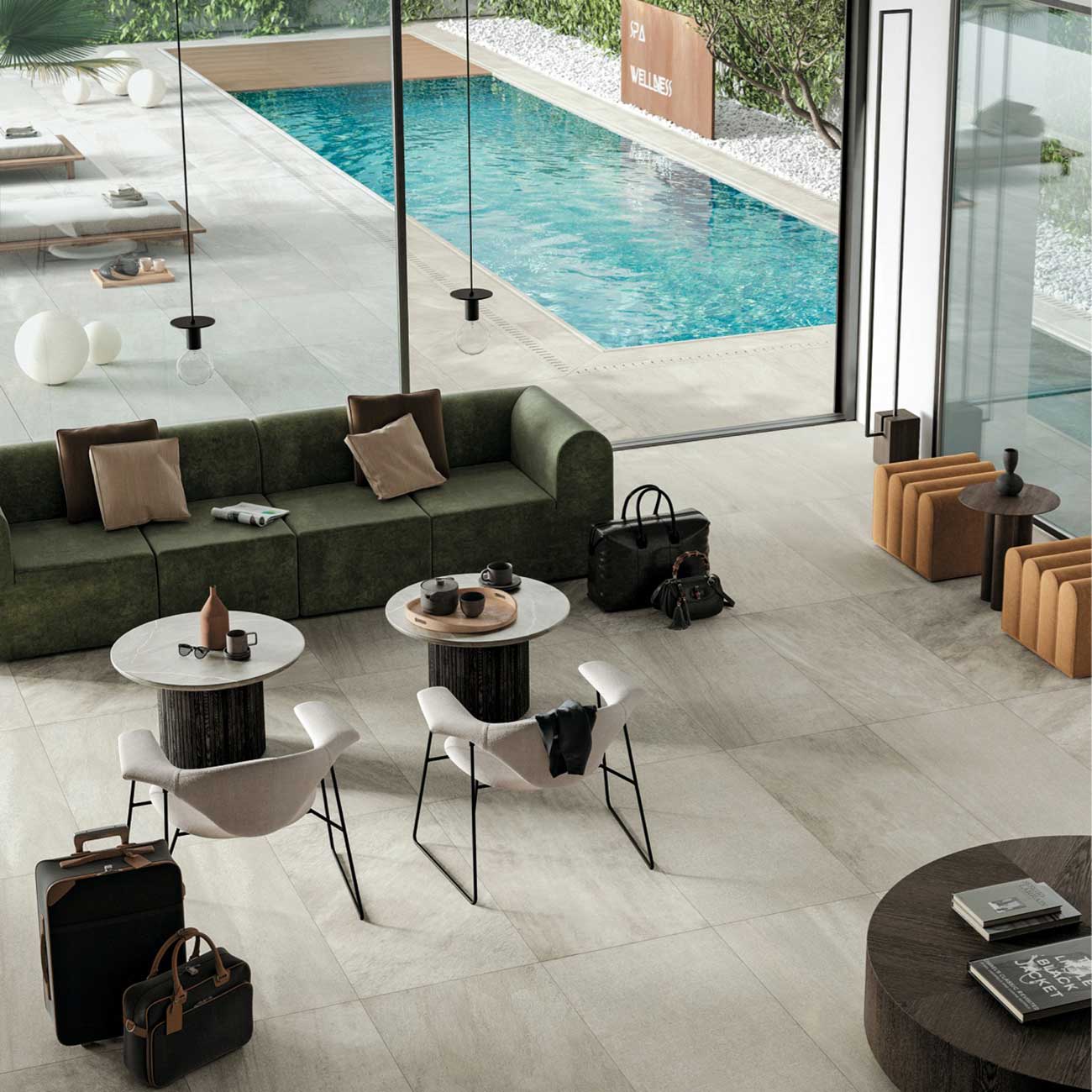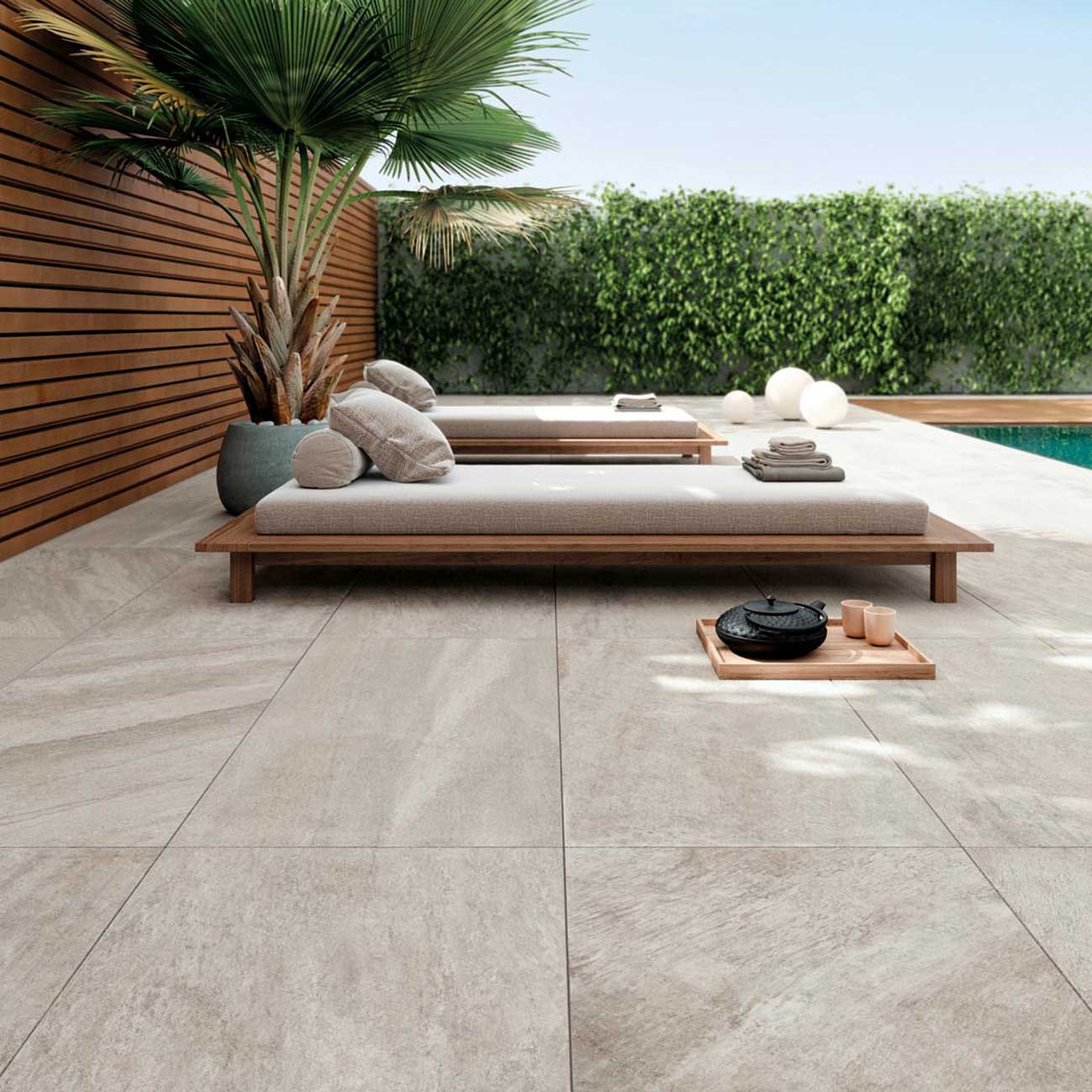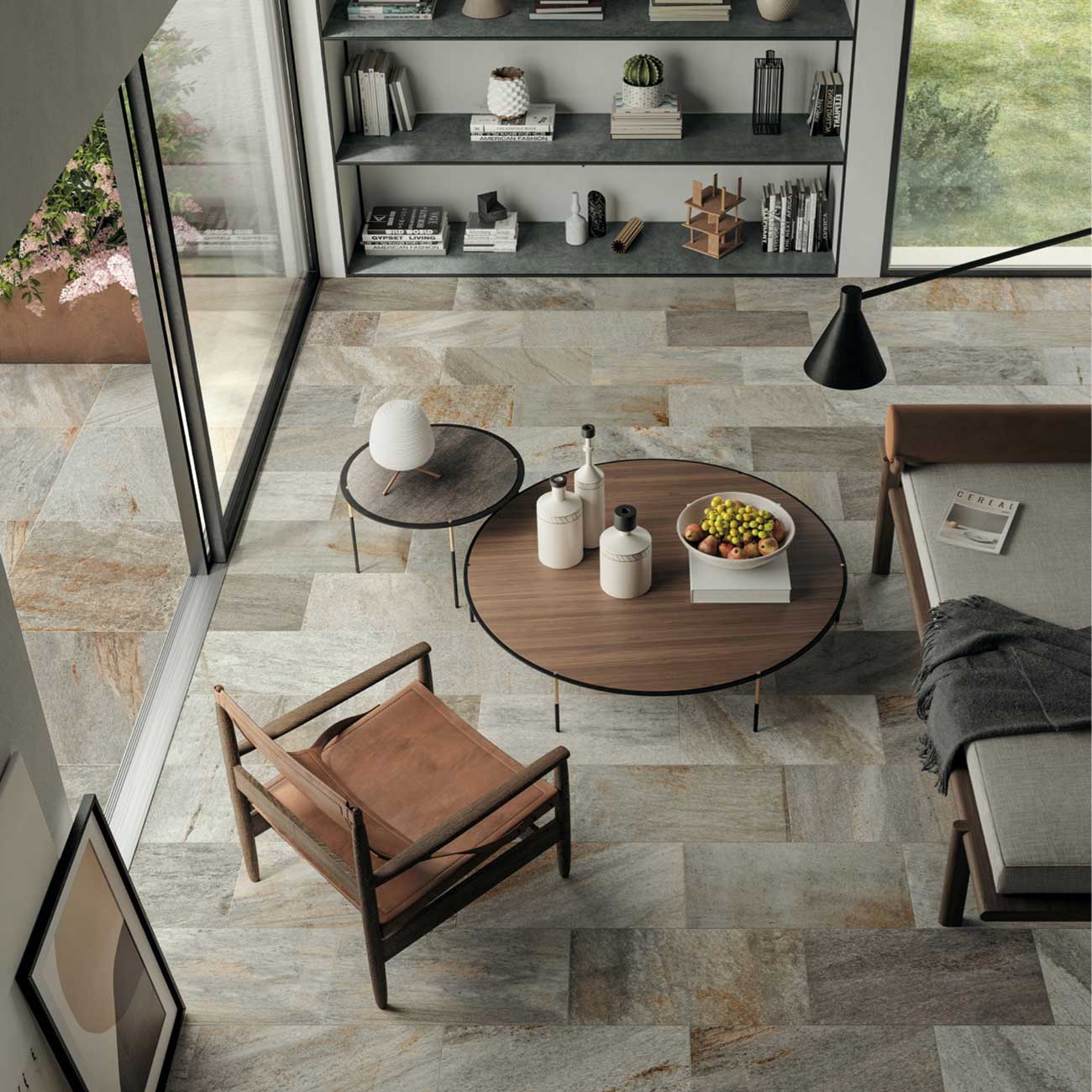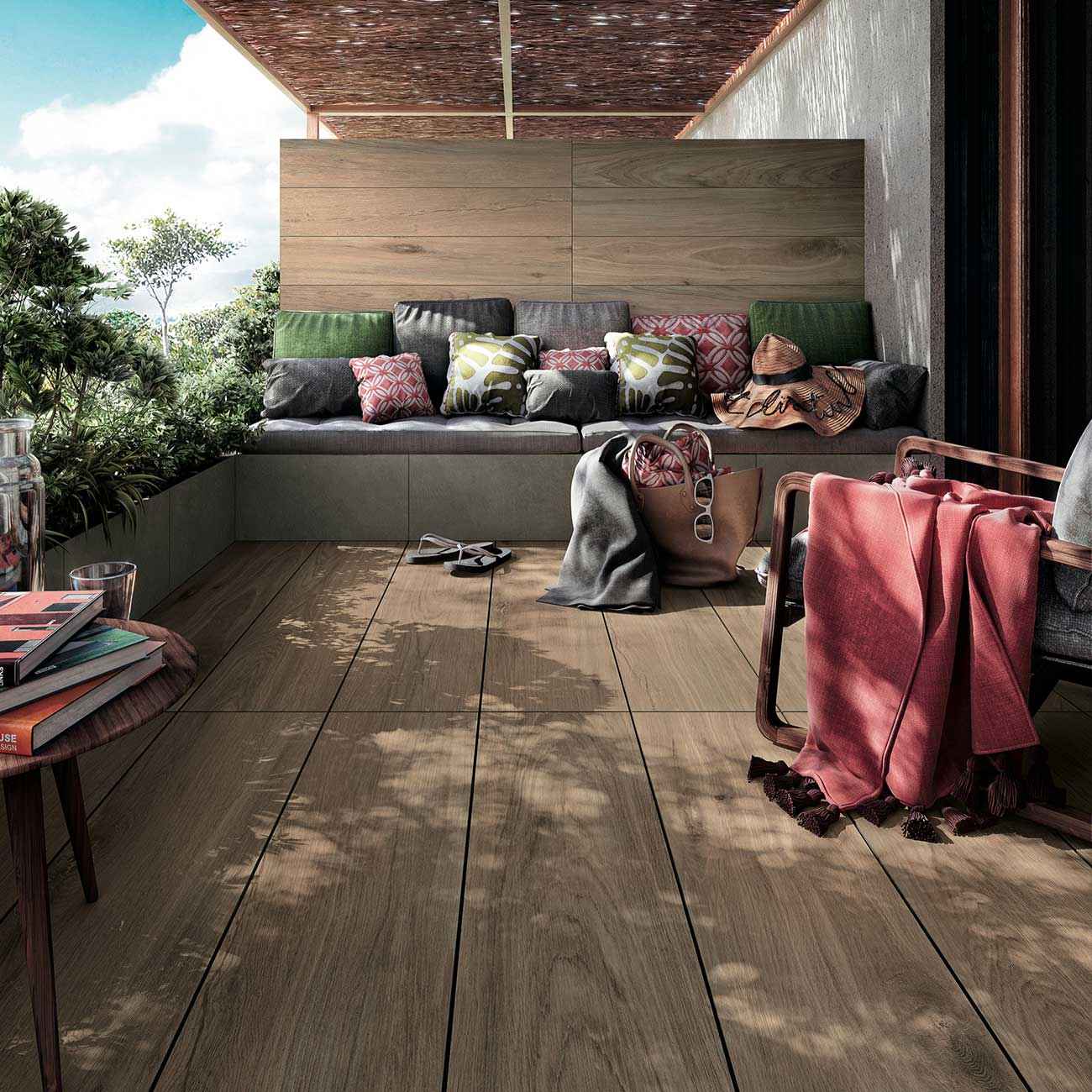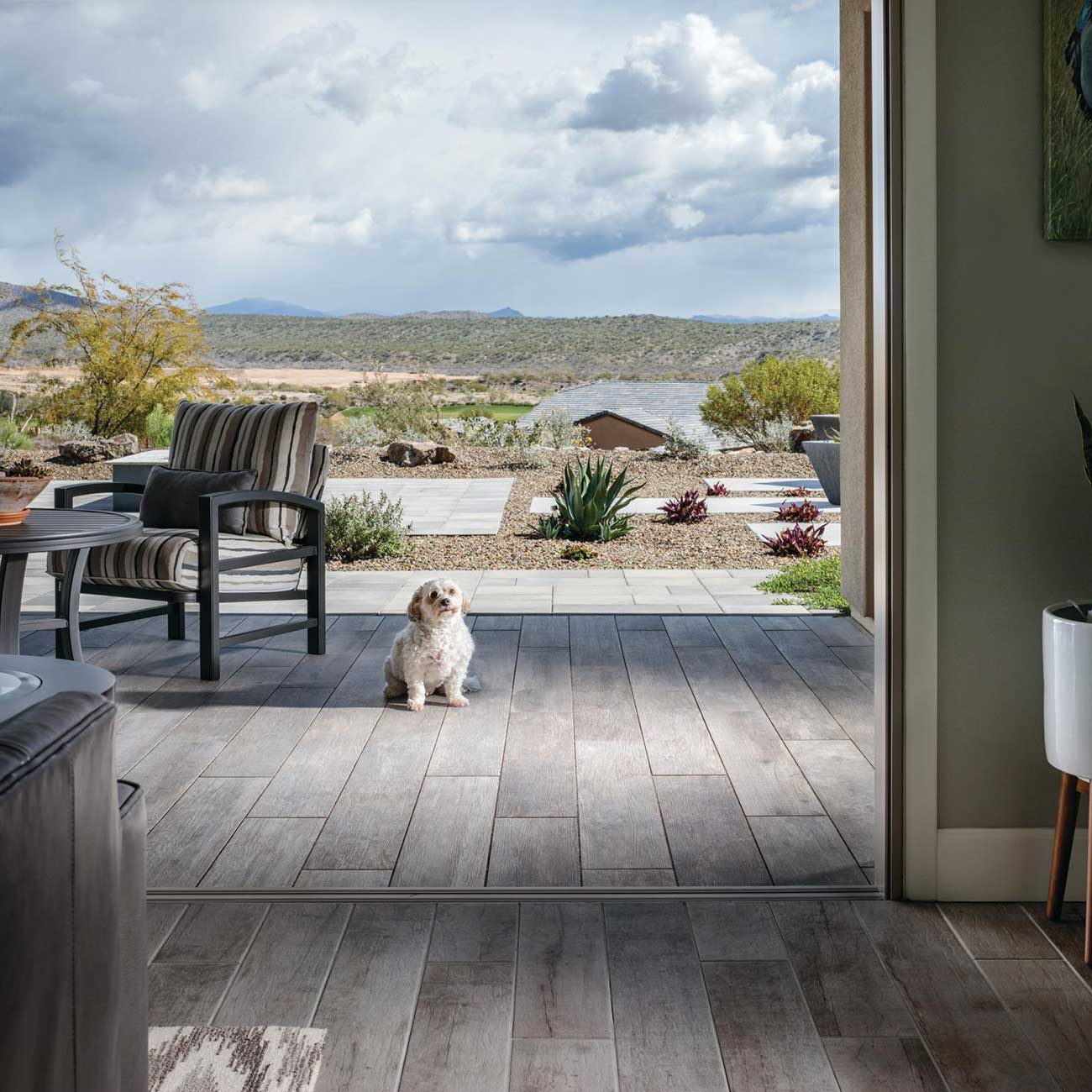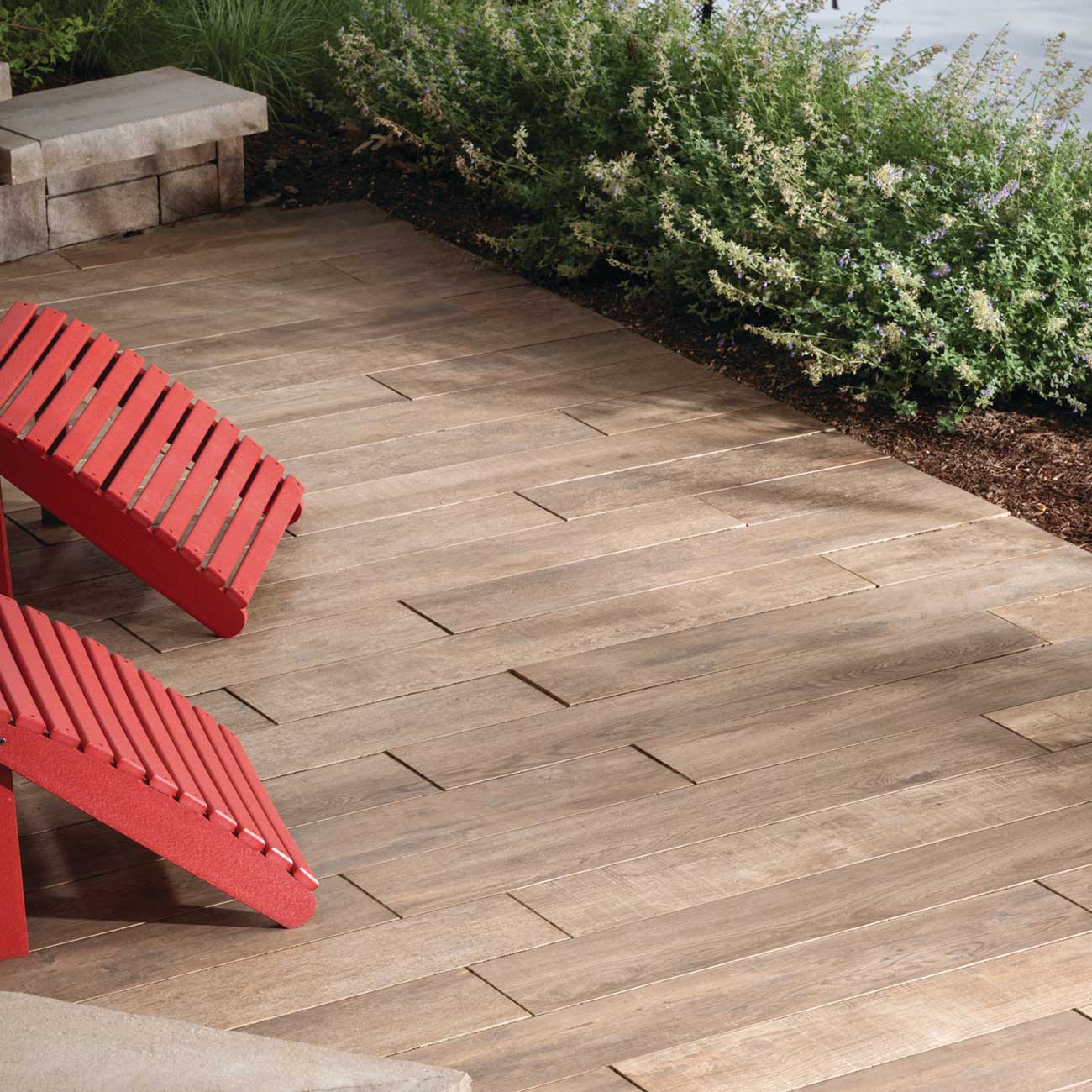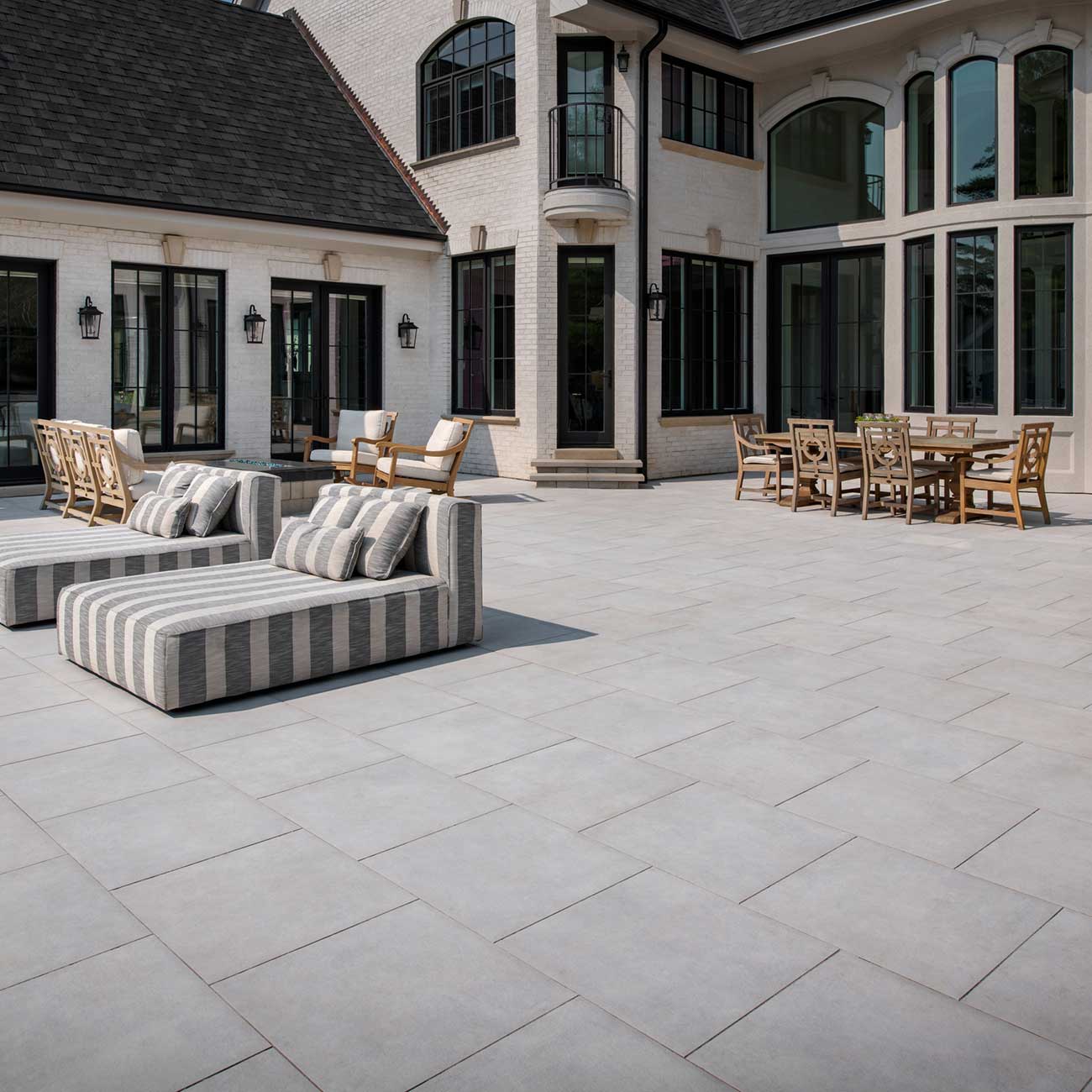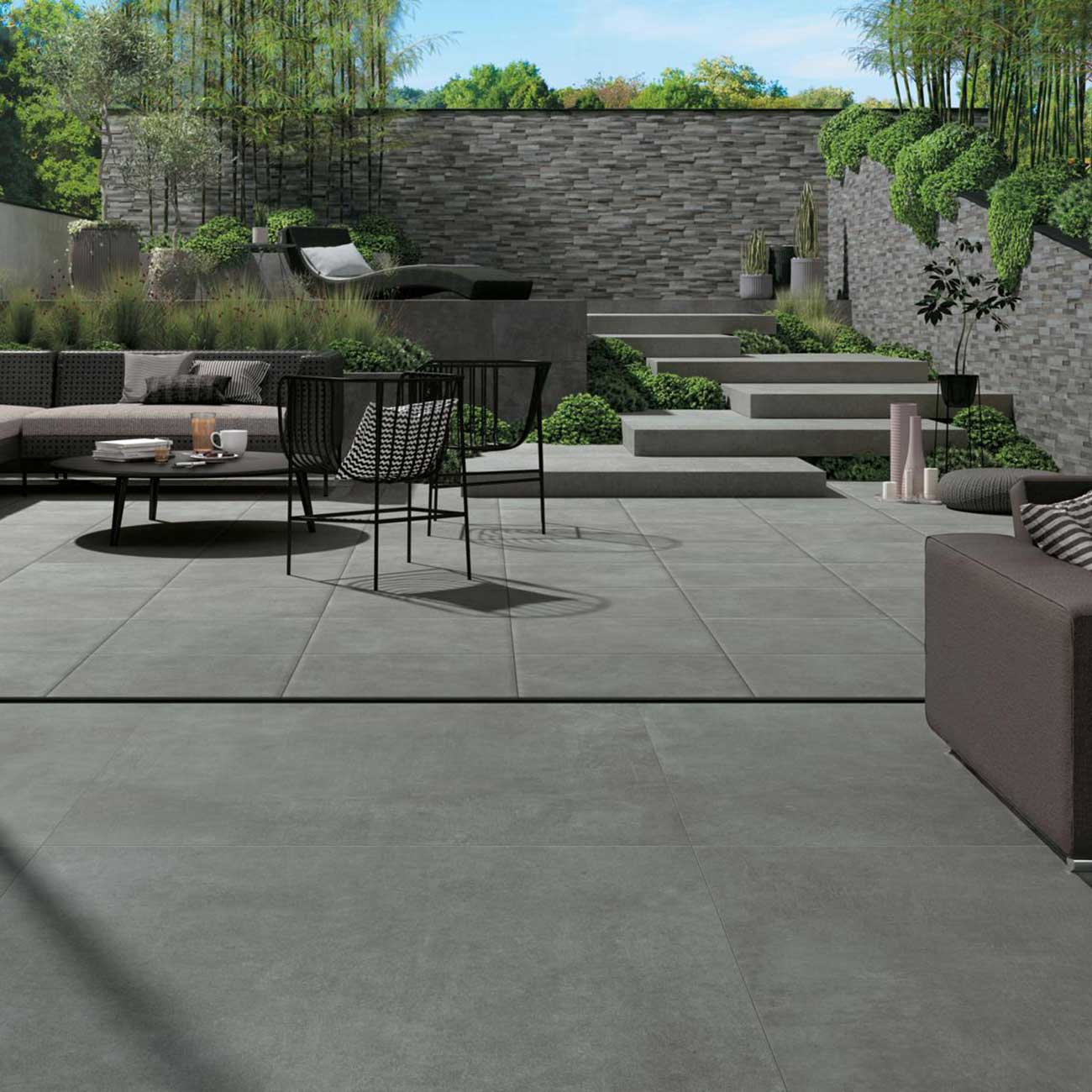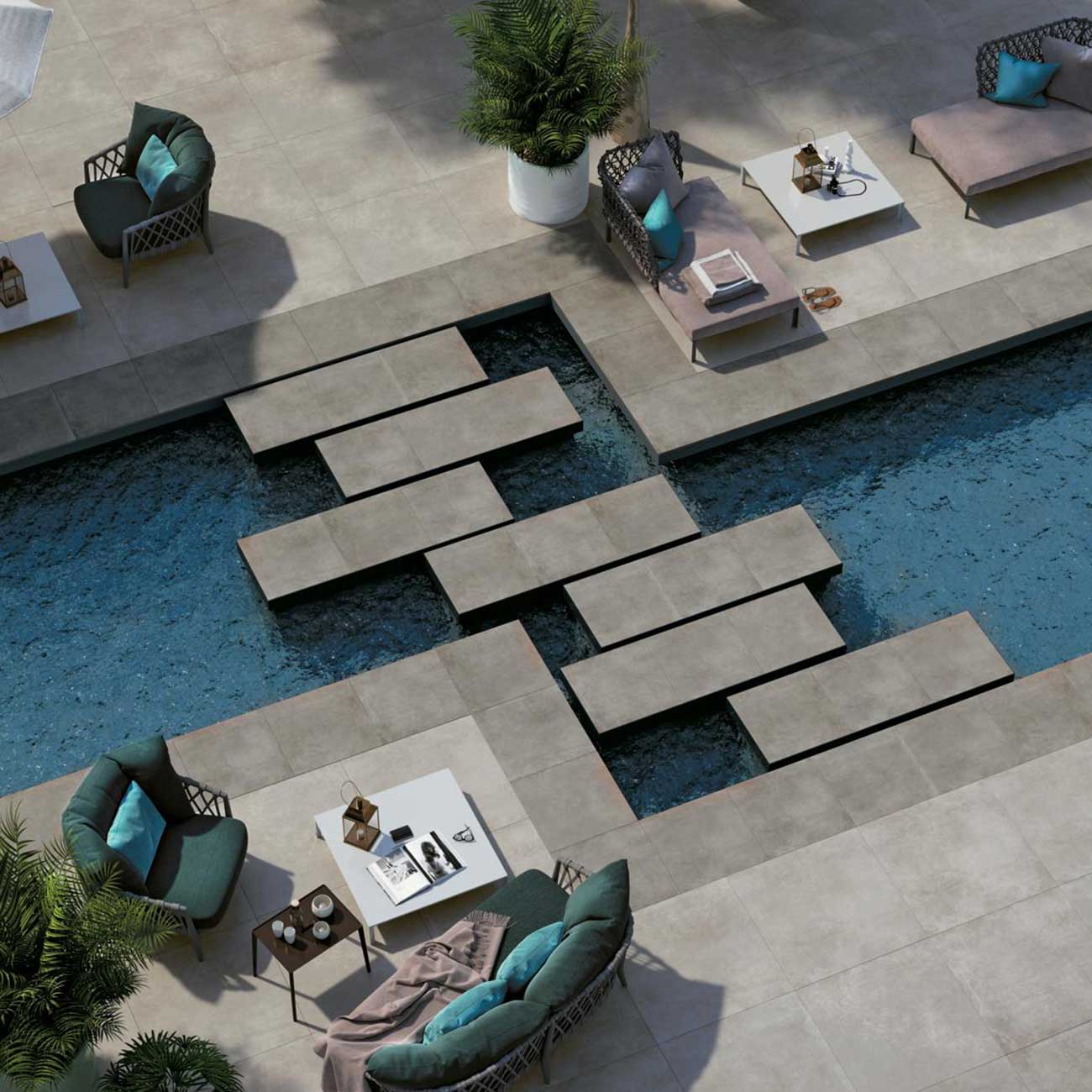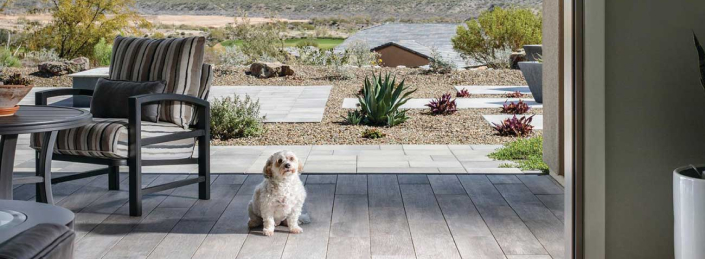Porcelain Pavers
Porcelain pavers are made using a mixture of clay, sand, and other materials, such as feldspar. These materials are blended together then pressed into a mold to form the desired size and shape. After pressing, each tile is fired in a kiln where it’s subjected to extremely high temperatures. Lastly, it goes through a fine-tuned cooling process to create a beautiful, durable paver that’s ready to stand up to anything you or Mother Nature can dish out. Porcelain pavers are great choices for front yard or backyard hardscapes.
All types of pavers are made for outdoor use, so whether you choose natural stone, concrete, brick, rubber, or another material, you’ll end up with a durable, attractive outdoor space. But porcelain pavers are unique because they offer benefits that other types of pavers lack.
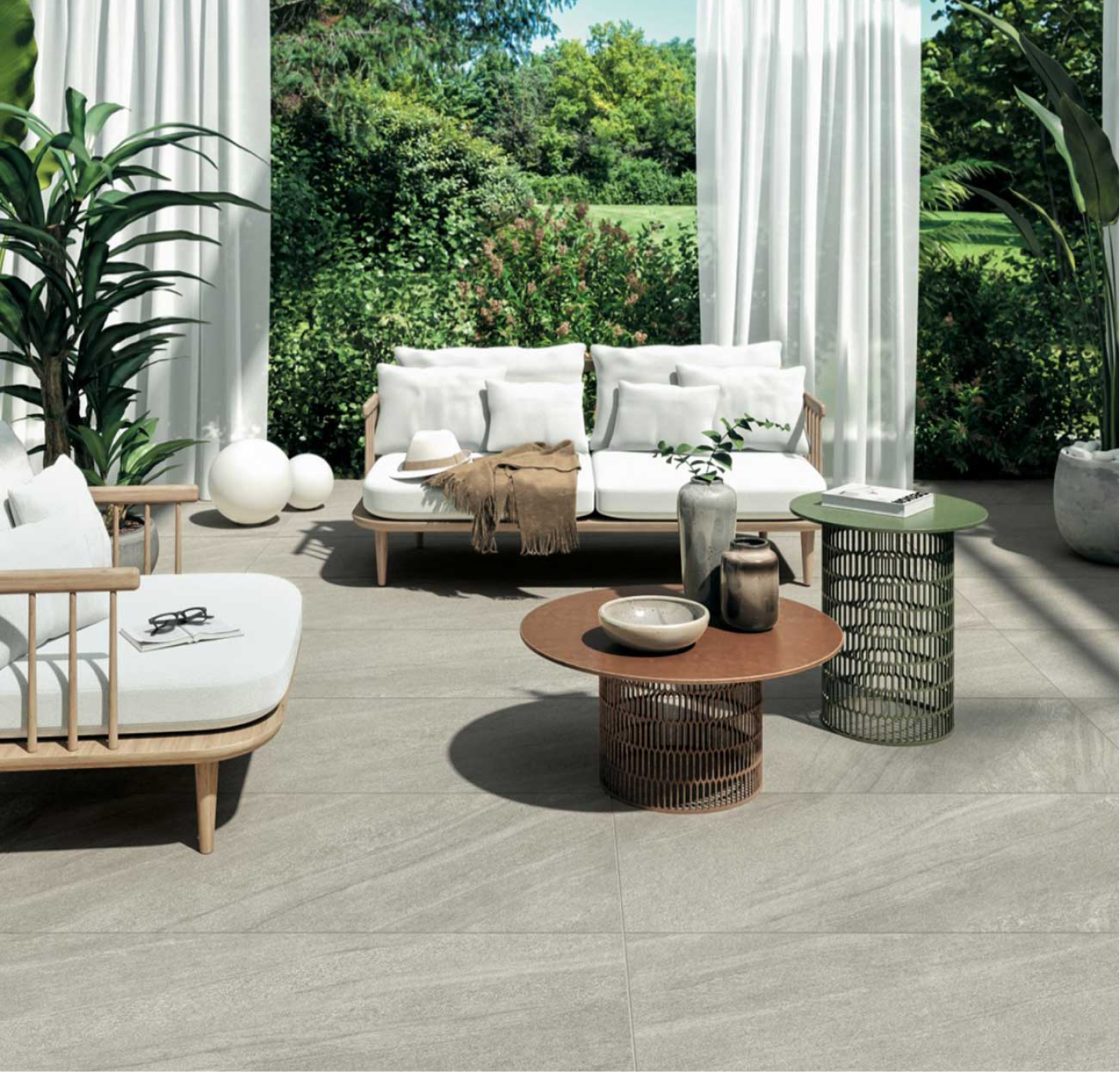
Benefits
of Porcelain Pavers
Because of how they’re manufactured, porcelain pavers absorb little-to-no water. This makes them more resistant to cracking and breaking as the ground around them freezes and thaws. And their impeccably hard surface makes them resistant to scratches, too. Additionally, they’ll remain free from frost at temperatures well below zero degrees. But maybe best of all, porcelain pavers stay cool and comfortable in summer, even beneath the bare feet of children and pets.
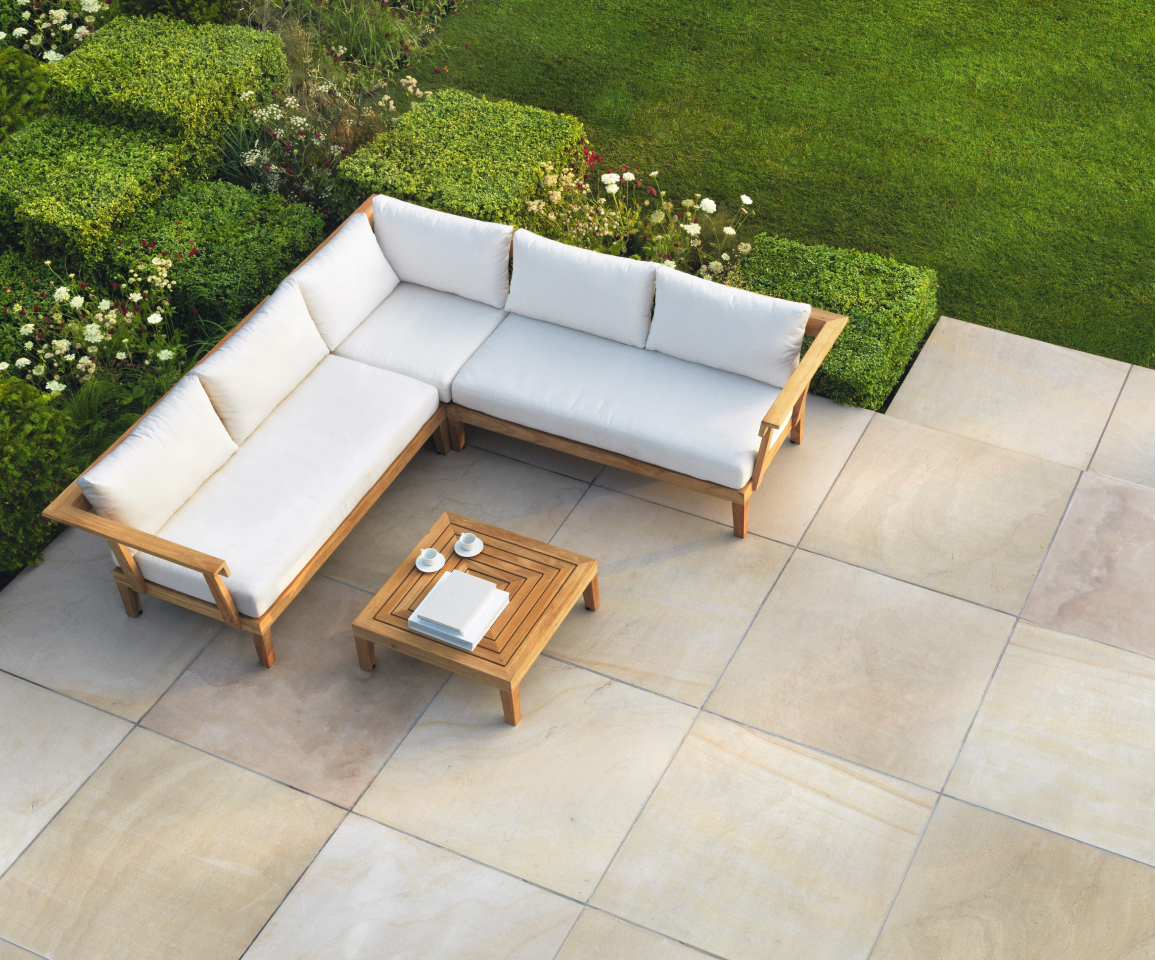
Perks
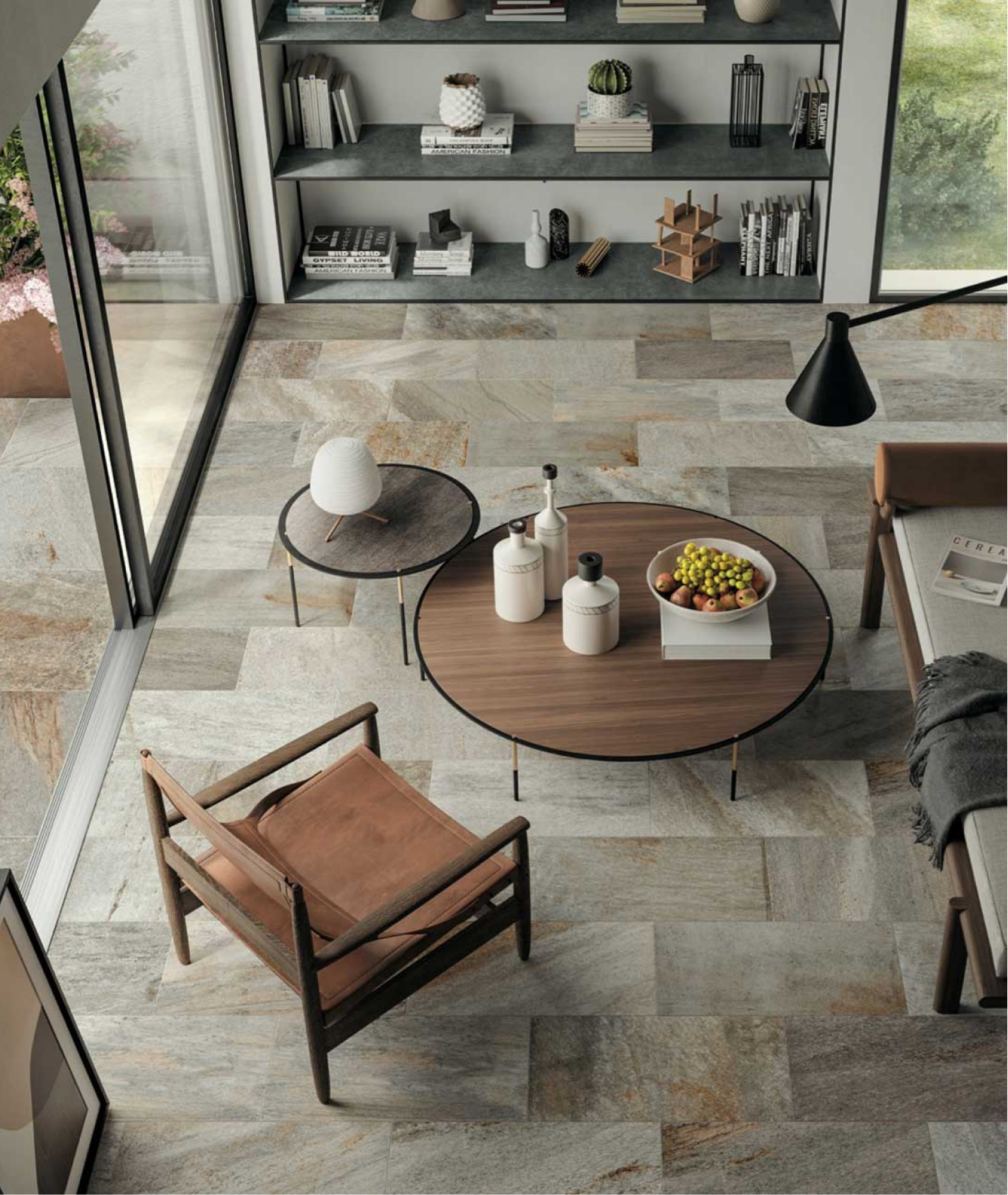
Why Are There So Many Myths Surrounding Porcelain Pavers?
Surprisingly, for such a versatile material, there’s a lot of uncertainty surrounding porcelain as a paving material. Mostly, this is because, until recently, most homeowners weren’t aware they were an outdoor option. Therefore, most of the rumors you may hear regarding porcelain as a paving material simply aren’t true. Porcelain pavers don’t crack or break more than other paving materials, they don’t become slippery when wet, they won’t wear out long before natural stone or concrete, and they’re not boring. In fact, porcelain is one of the few outdoor materials that can be designed to mimic many other surfaces, including wood, stone, and concrete. They’re also available in a wide range of shapes and sizes.
Applications for Porcelain Pavers
There are probably as many suitable applications for porcelain pavers as there are ideas for using them. Nearly any outdoor project can be converted to porcelain. This means they’re a good choice for garden enthusiasts who want to create a meandering path through their backyard oasis. And they’re equally as suitable for new homeowners who want to upgrade their driveway from plain, black asphalt. Additionally, these pavers are ideal for:
- Patios
- Fire pits
- Pool surrounds
- Front or back walkways
You can use porcelain pavers to boost the curb appeal of your home’s front entrance, too. Because you can install them easily over concrete or grass as well as sand and gravel, there really aren’t very many outdoor projects where porcelain pavers won’t work. You can use them to construct retaining walls and planter boxes or use them as outdoor flooring in your gazebo or beneath your pergola. Regardless, they’ll add beauty, functionality, and convenience wherever you install them.
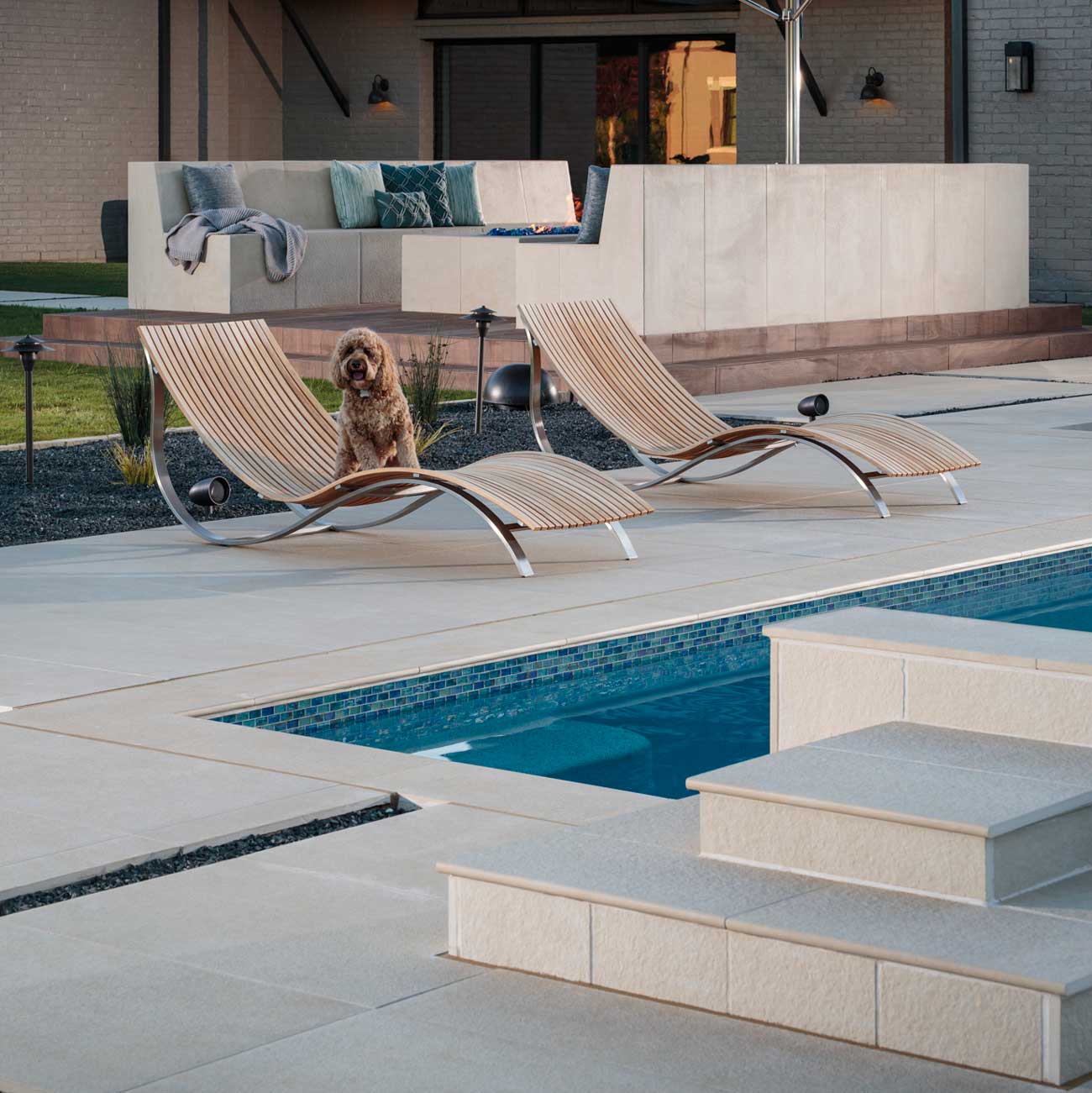
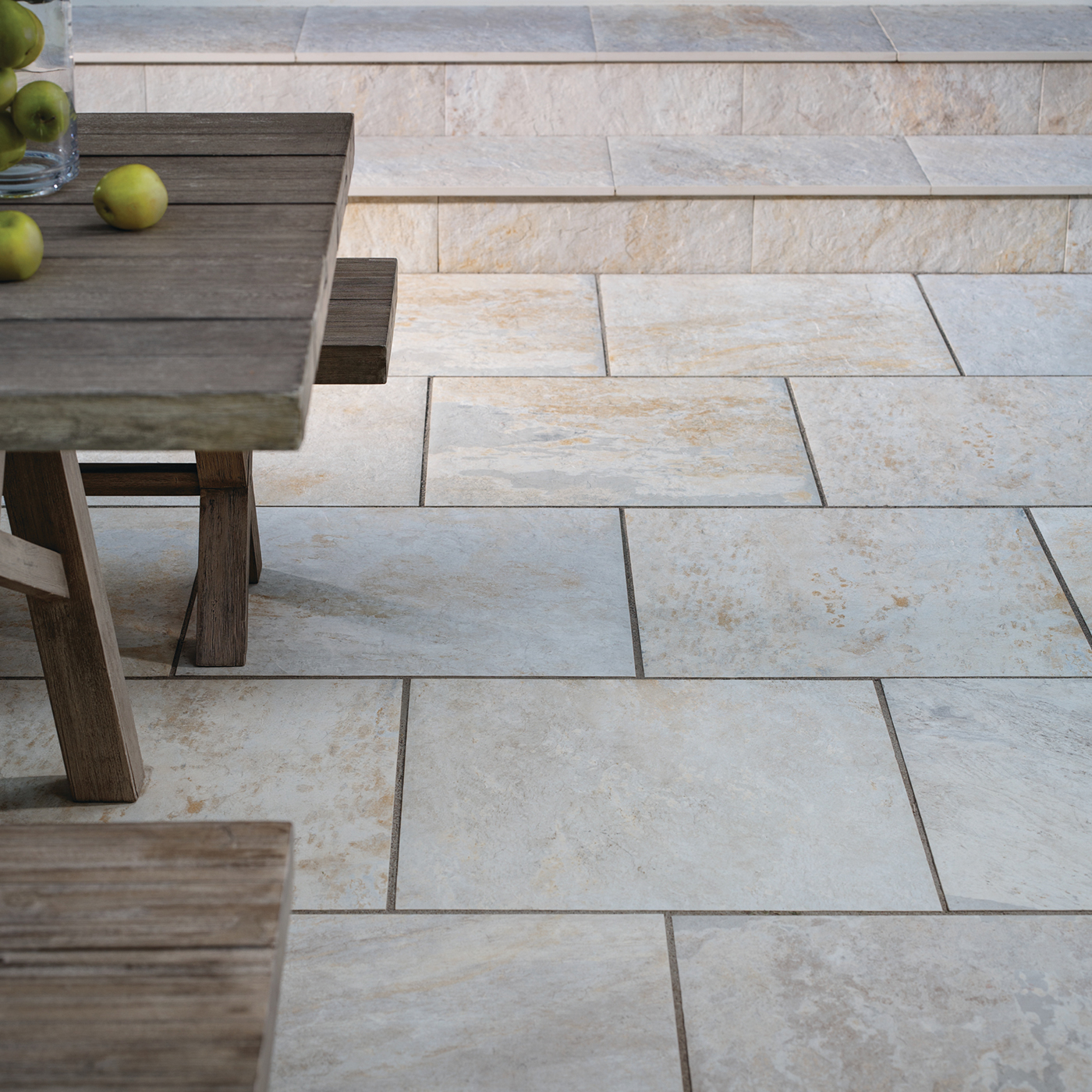
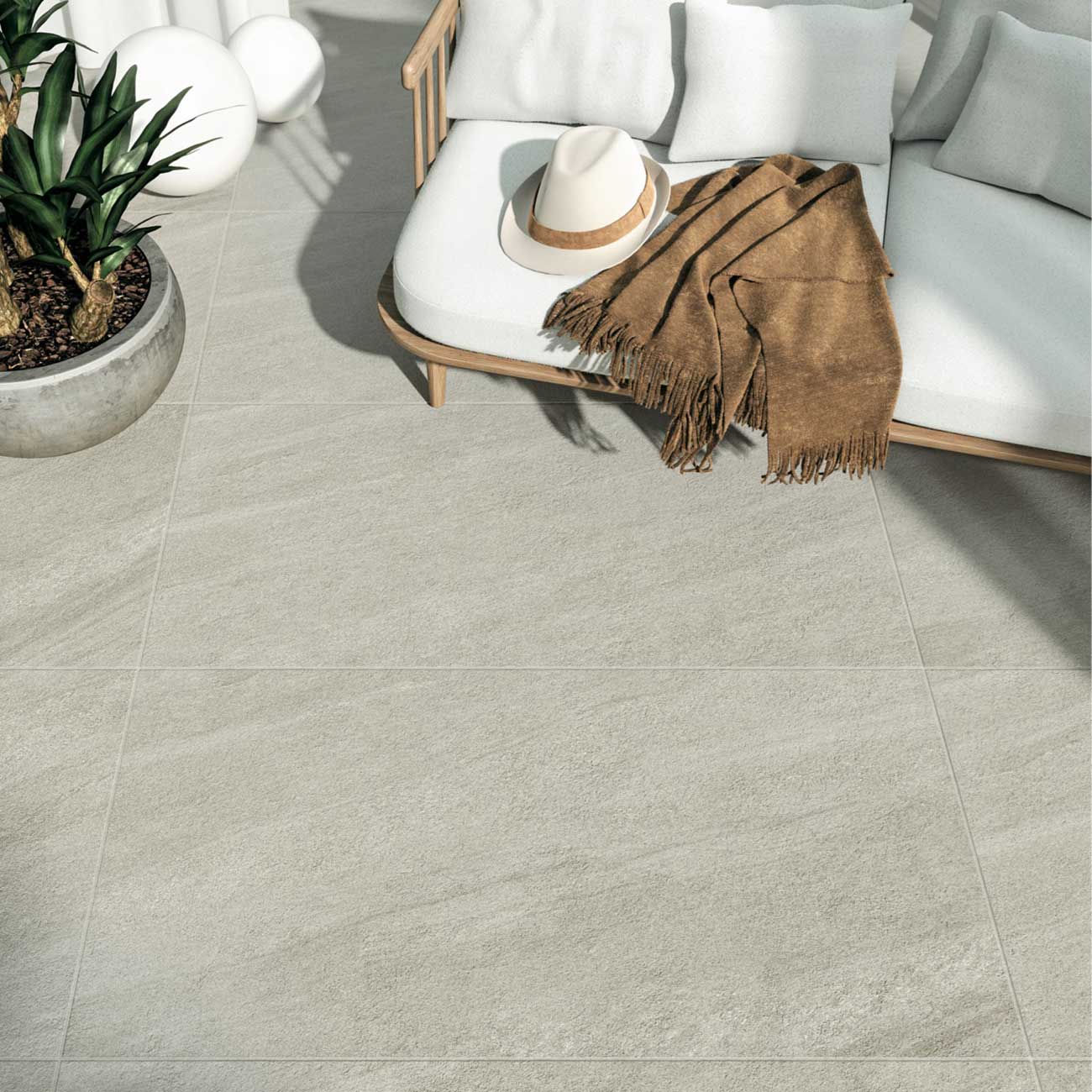
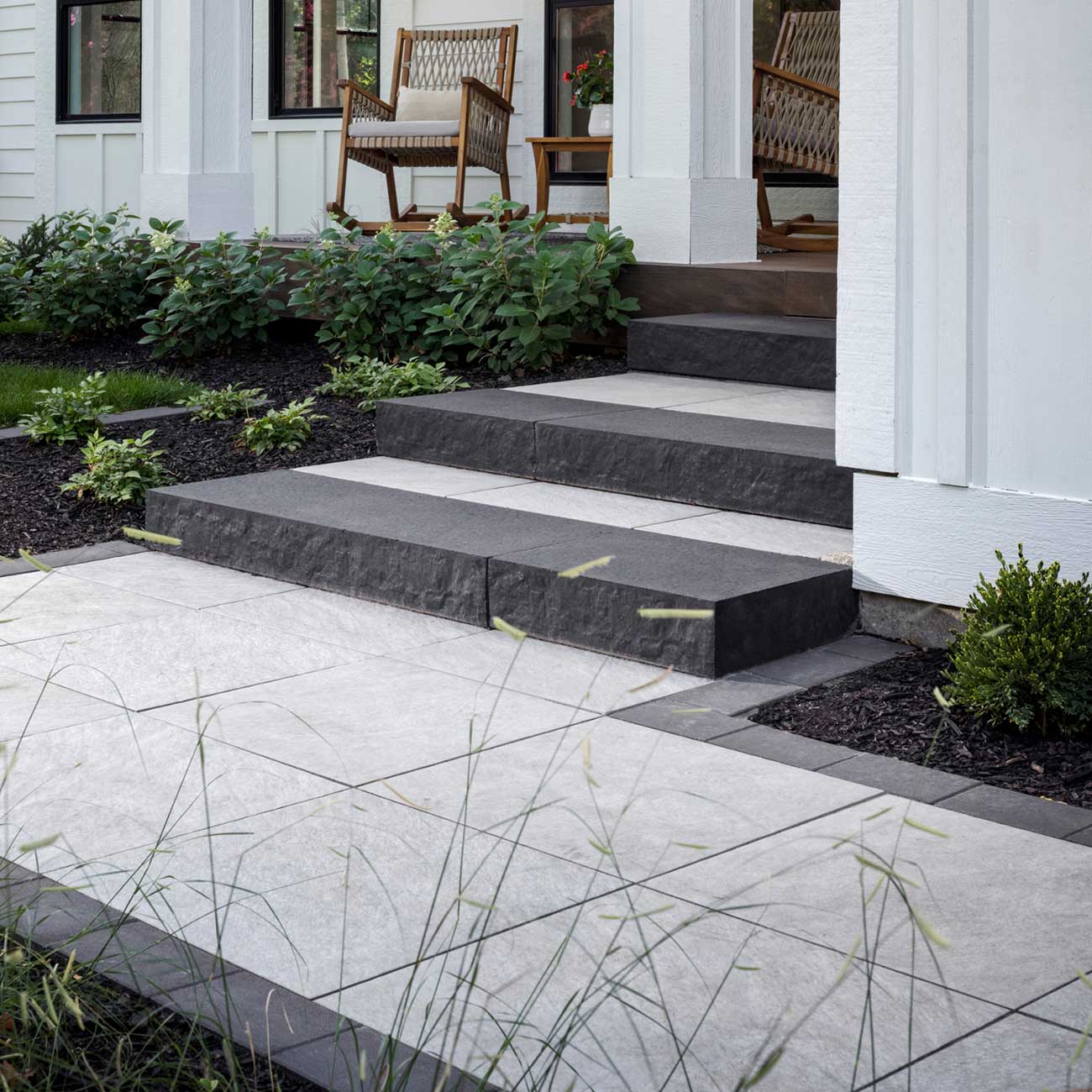
Pavers We Love
At Infinity Pavers, we’ve seen a resurgence in interest toward porcelain pavers. And today, they’re one of our most popular outdoor installations. If you’re considering porcelain for your next outdoor paving project, take inspiration from those previous customers have grown to adore:
Ardesie pavers are intended to mimic the natural beautiful characteristics of slate.
An elegant paver with soft veining, Silverlake is as stunning as it is versatile.
Warm and elegant, but with the smooth grout lines and unmatched durability of porcelain, Jurupa comes in a few soothing colors
Contemporary, yet rustic, Noon is a wood-look porcelain paver that capitalizes on the warmth of natural wood. Available colors include:
Glocal is a porcelain alternative to concrete. Mimicking the distinct colors and texture of concrete, Glocal porcelain pavers are available in a stunning array of gray and neutral tones
Porcelain Pavers vs Natural Stone
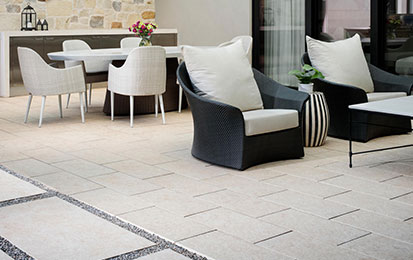
Paver installation Hhas a permeable sand or gravel base layer
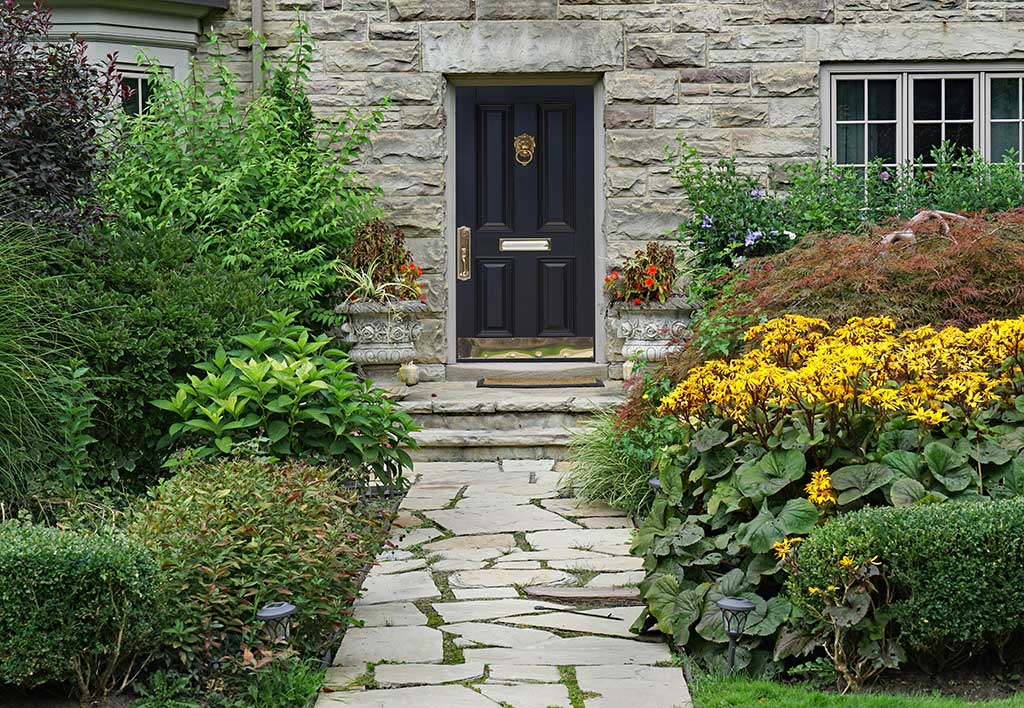
Requires a base layer of concrete, which leads to run-off
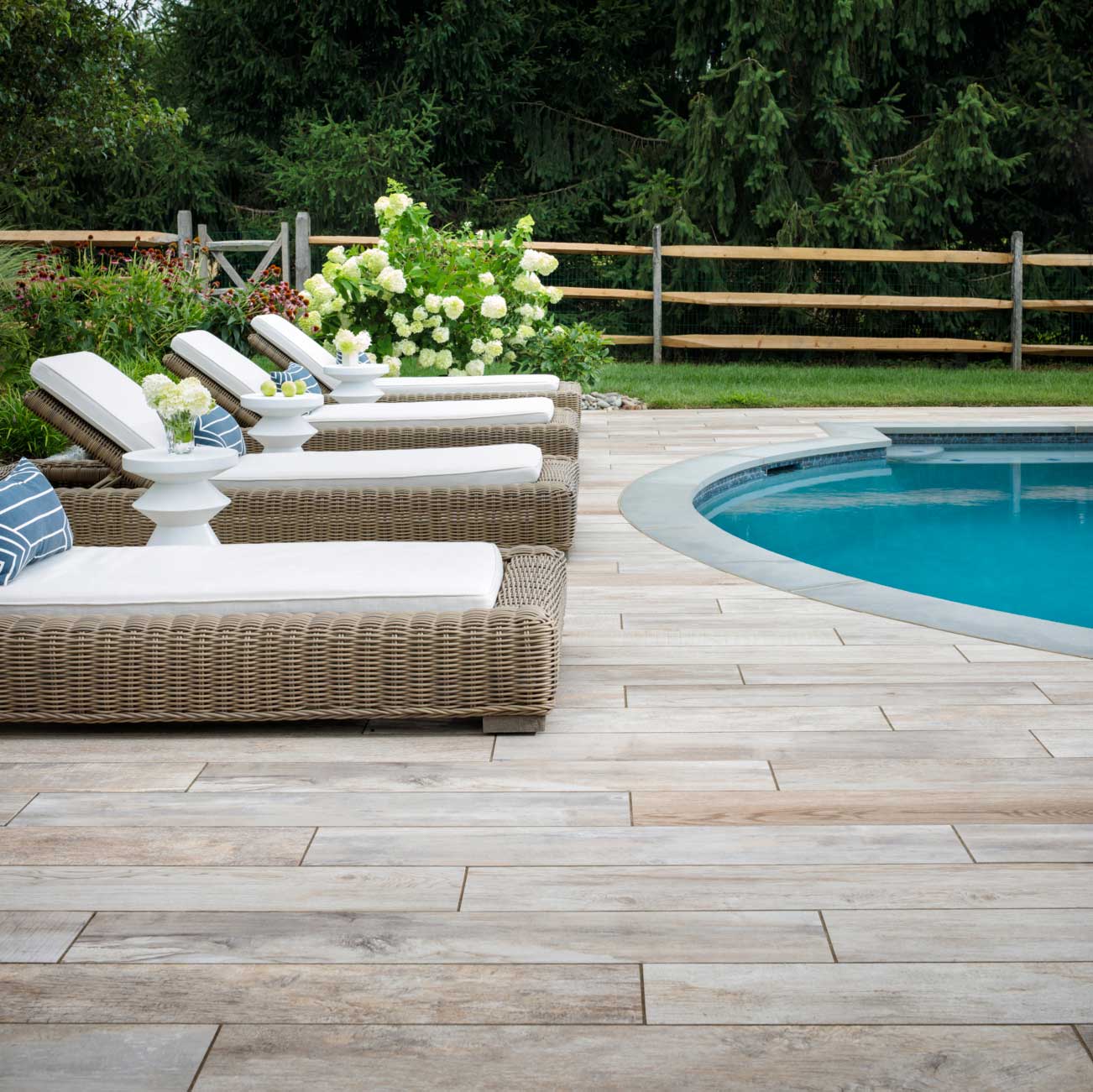
Pavers comes in many colors, sizes, shapes, textures, and types
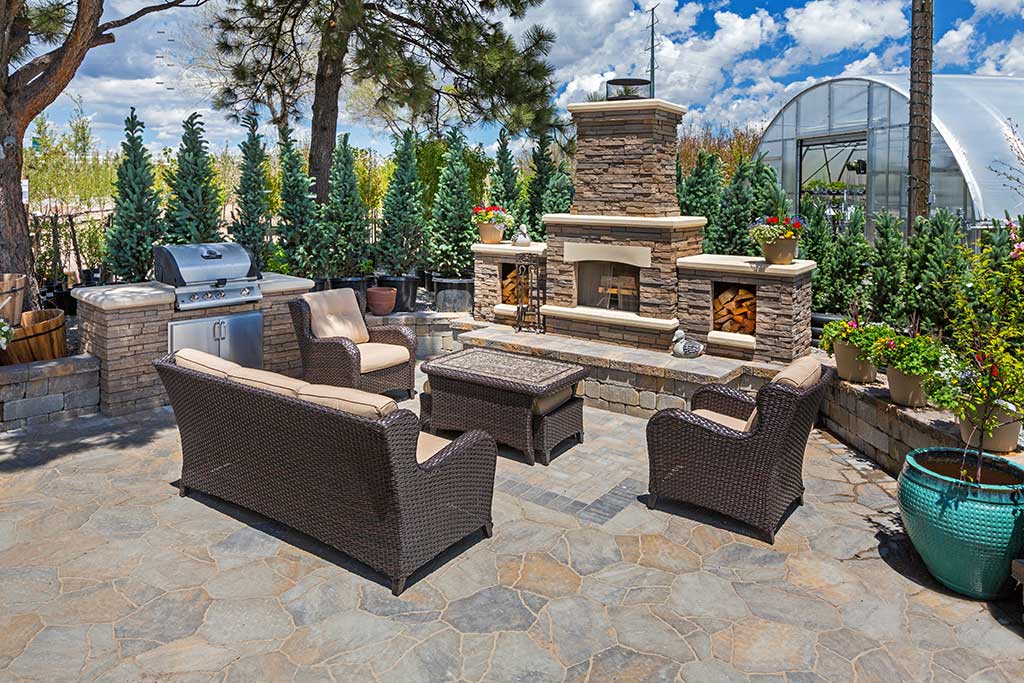
Less versatility compared to pavers
porcelain PAVERS FAQ
Didn’t find an answer? Don’t hesitate to contact us in case you haven’t found your answer. We would love to help!
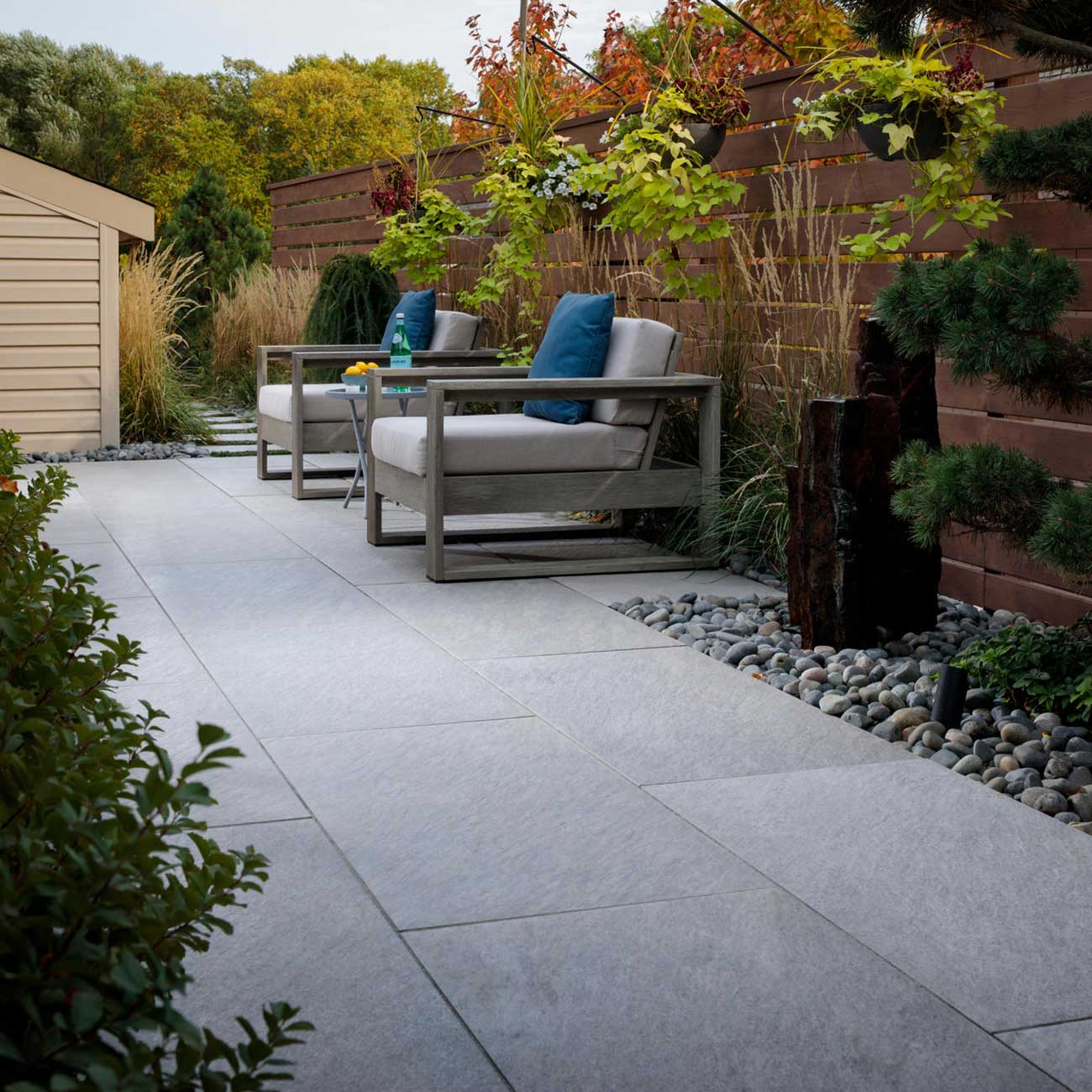
Porcelain pavers are not the most expensive type of paver on the market, and they’re not the cheapest. If you’re looking for a good, mid-grade alternative, porcelain is it. The costs associated with a porcelain paver installation are based on multiple factors, including the type of paver selected, the breadth and difficulty of the project, and more. If you’re interested in obtaining a price quote for your next outdoor paving project, contact Infinity Pavers to schedule a consultation.
While all three materials will result in a beautiful and durable outdoor space, porcelain has obvious advantages over both concrete and natural stone pavers. Most porcelain does not require the sealing and resealing that natural stone and concrete need. And it won’t fade in direct sunlight or erode over time as concrete might. Additionally, porcelain won’t heat up your outdoor space like natural stone will when the sun is blazing. And it’s more impervious to stains, moisture, and frosty temps than both concrete and natural stone.
